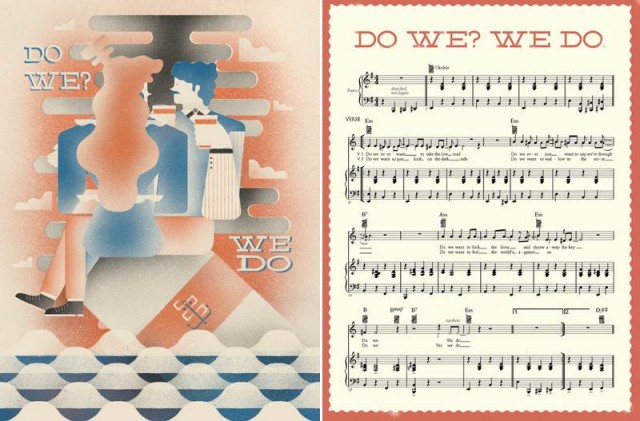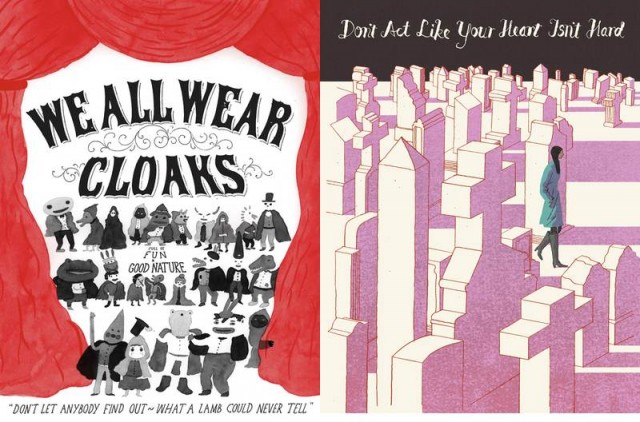Before recording, there was simply music making. When you wanted to hear music, you had to find some actual living, breathing, fleshy musicians to make it happen. “Live” was the only kind of music. And prior to the record album, the mass publication of sheet music was the disruption that built a music industry.
But there’s no reason people can’t get together and play music themselves. So, the first question you might ask, when seeing that Beck is releasing an “album” in the form of a set of sheet music, is, “why not?” And, for music in general, “why not more?”
Working with McSweeney’s, Beck [Beck Hansen] is preparing a release called Song Reader for December 2012. The physical format is also part of the design, including full-color illustrated art and a hardcover carrying case. The publicity for the release somewhat grandiosely says the reader is an “experiment in what an album can be at the end of 2012” and calls sheet music an “almost-forgotten form.” That claim is fair at least in that it’s sheet music without an accompanying release of a recording. Apart from a work by Bach, that is indeed something different. And the physical object sounds lavish: 108 full-sized pages, all in color, and twelve artists.
(Lest you think Beck is going entirely oldschool and will be releasing music on stone tablets next, he also has a compelling release for the just-released PlayStation 3 and PlayStation Vita game Sound Shapes, along with our friends Jim Guthrie and I Am Robot and Proud and the ubiquitous Deadmau5. More on that side of the “future of music” later; see the Beck video.)
But what is the state of sheet music, anyway? Well, while it is generally accompanied by recording, it’s not quite forgotten yet. But the market in the United States is being hit hard by recession and music education cutbacks.
A report by market research group IBISWorld, released at the end of last year, reported a time of transition for the industry. That report suggested the kind of transition to digital from print that the record industry has undergone – though this desirably-attractive release from Beck is an excellent example of why releasing on paper can have its own value.
Sheet music faces some challenges that even recording doesn’t. The industry report notes that musicians can turn to YouTube karaoke or instructional videos and avoid looking at scores at all – even before you get into free (often-illegal) guitar tab or file sharing. And music notation itself assumes that people know how to read music, which these alternatives don’t. (There’s a problem recording labels never had to address.)
Notation sales are falling off, though not at the same precipitous rate as recording revenues. In the report, “IBISWorld estimates that industry revenue fell at a 3.9% annualized pace to $339.1 million in the five years to 2011.” The report blames a number of factors, including online competition lowering prices and the aforementioned proliferation of free online alternatives, but also government cuts in the US for arts education and the recession dampening available disposable income.
But if you’re an individual artist, you don’t have to take on these grander trends all at once. Short-run printing is often relatively inexpensive – especially when compared to something prohibitive like cutting your own vinyl release. And note that Beck includes both instrumentals and vocals – meaning not everything has to have lyrics – and uses the release as an opportunity to add additional artists.
The independent artist and label, and a tightly-knit community of DJs and enthusiasts, have helped keep vinyl alive. If sheet music is to enjoy a similar future, it seems likely that it’ll be those same kinds of communities that make it happen.
http://www.mcsweeneys.net/pages/song-reader
http://www.beck.com/
Via A.V. Club (The Onion) and thanks to CDM industrial design and music media intern Arvid Jense!

